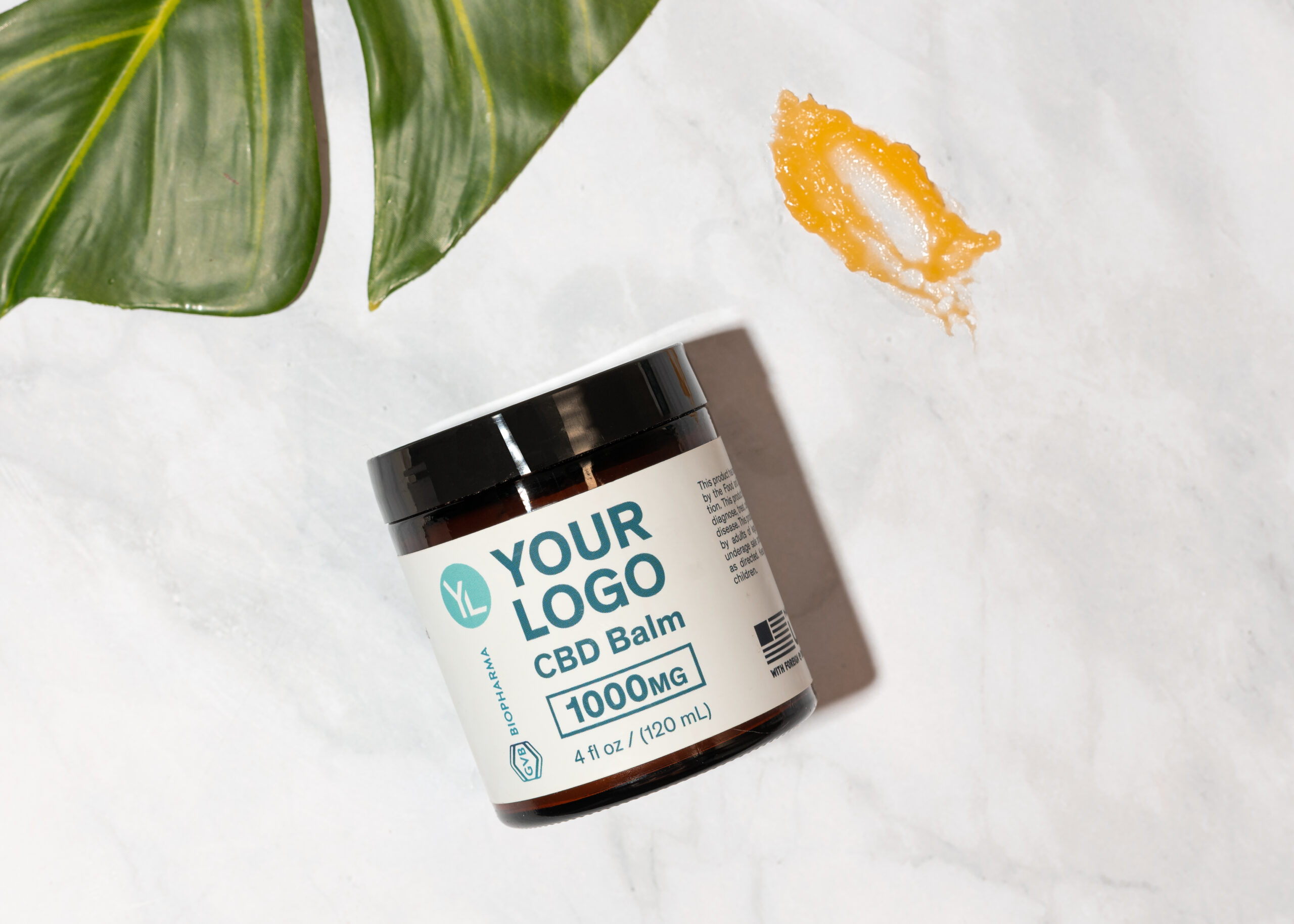Hemp is a variety of the Cannabis sativa L. plant that has been used for over 10,000 years to make clothing, paper, and more. This plant hails from Europe and western Eurasia and has a high cannabidiol (CBD) content. Traditionally, it has been used in the textile industry; more recently, it has gained popularity in the food, pharmaceutical, and cosmetic industries (1).

GVB Biopharma provides complete in-house manufacturing of a number of cosmetics using their pure hemp extracts and distillates. The U.S. CBD market is expected to reach $16 billion by 2025 (2). Even better, the global CBD cosmetics industry is expected to hit $1.7 billion in similar time, highlighting a lucrative opportunity that cosmetic companies can take advantage of (3).
Hemp Extracts Used in Cosmetics
While hemp fibers are traditionally used for fabric and paper, hemp extracts are mainly used in cosmetics and ingestibles. The 2018 Farm Bill removed hemp and its derivatives with low THC levels (less than 0.3%) from the federal definition of marijuana (4). This has allowed GVB to offer their high-quality products for use in cosmetics.
Cannabidiol (CBD)
CBD is just one of many cannabinoids that can be isolated from the C. sativa L. plant. Unlike THC, CBD does not have any psychoactive properties. It is used to help diminish the side effects of a number of conditions (5).
More recently, the cosmetics industry has found that CBD is a great additive in skincare products. This cannabinoid has become well known for its potential anti-inflammatory and antioxidant properties.
GVB Biopharma’s Hemp-Based Distillates
Cosmetics infused with CBD oil use either full-spectrum CBD oil, broad-spectrum CBD oil, or CBD isolate. Each product contains different concentrations of CBD and other components. The type of oil being used will depend on the product being developed. GVB Biopharma offers all three types, each are premium quality and rigorously lab tested to meet any company’s cosmetic needs.
CBD Isolate
CBD isolate is the purest form available, consisting of 99%+ CBD. All of the hemp plant matter is removed from the isolate, including waxes, oils, chlorophyll, and more, resulting in a CBD powder that is nearly chemically pure. It does not contain any additional cannabinoids as is the case with broad- or full-spectrum distillates. CBD isolate is best for facial skincare products, because it does not clog pores and contains the highest levels of antioxidants.
Broad-Spectrum CBD Distillate
Broad-spectrum distillate contains 85%+ CBD, in addition to other cannabinoids such as cannabigerol (CBG), cannabichromene (CBC), and cannabinol (CBN). Other components isolated from the hemp plant in this distillate include flavonoids and terpenes. Of important note, broad-spectrum distillates do not contain THC, making it great for products where THC is undesirable, but a high potency of CBD and minor cannabinoids is critical.
Full-Spectrum CBD Distillate
Full-spectrum CBD distillate contains +/- 85% CBD, in addition to all of the cannabinoids found in the broad-spectrum distillate. The main difference from other distillates is that the full-spectrum distillate contains federally compliant levels of THC (0.3% or less). Full-spectrum CBD distillate can be affordably used in products where low, compliant levels of THC are desirable.
Using GVB’s Distillates in White Label Products
GVB’s expertise in developing raw materials positions them to uniquely serve white label customers. Their top-quality extracts and distillates are used in products for several top brands in the U.S. GVB provides several services, including flavoring, infusion, containers and labeling, and shipping/distribution. Their fully vertical integration platform allows them to carefully control every aspect of this process from seed to shelf.
GVB offers a number of white label cosmetic products, including balms and salves, creams, and lotions. These can be customized to fit any company’s specific needs with one of their three CBD distillates. All products contain nanosized, encapsulated, or micellized CBD, which penetrates the derma layers of the skin to provide deep moisturization. They are also lab-tested during multiple stages of production to ensure quality.
Creams
Slightly thicker than their lotions, GVB’s creams are formulated to customers’ specifications and are a keystone product in any skin-care line. GVB offers customization of cannabinoid-rich hand and foot creams that can be easily massaged into the skin to provide location-specific relief.
Lotion and Body Lotion
GVB’s lotions are popular among casual CBD customers looking for location-specific alleviation of aches and pains through application directly to an affected area. They can specially formulate lotions for a desired consistency, scent, or cannabinoid concentration.
Balms and Salves
Balms, also called salves, are a key component of any skin care product line. These can be topically applied to an affected area of the skin, providing relief. Balms can be customized and branded for any purpose, ranging from fitness to high-end spa products. GVB’s rich, buttery formulas can be massaged right into the skin to deliver the benefits of CBD and other cannabinoids.
References
- Ledesma A. How are hemp and other Cannabis sativa L. extracts used in cosmetics? The International Natural and Organic Cosmetics Association. Accessed November 19, 2020. https://www.natrue.org/how-are-hemp-and-other-cannabis-sativa-l-extracts-used-in-cosmetics/
- Devash M. Everything You Need to Know About CBD Oil in Beauty Products. April 20, 2019. Allure. Accessed November 19, 2020. https://www.allure.com/story/cbd-oil-in-beauty-products
- Nazish N. Everything You Need to Know About CBD Skincare. Forbes. December 30, 2019. Accessed November 20, 2020. https://www.forbes.com/sites/nomanazish/2020/12/30/everything-you-need-to-know-about-cbd-skincare/
- Food and Drug Administration. Hemp Production and the 2018 Farm Bill. July 25, 2019. Accessed November 19, 2020. https://www.fda.gov/news-events/congressional-testimony/hemp-production-and-2018-farm-bill-07252019
- National Center for Complementary and Integrative Health. Cannabis (Marijuana) and Cannabinoids: What You Need to Know. November 2019. Accessed November 20, 2020. https://www.nccih.nih.gov/health/cannabis-marijuana-and-cannabinoids-what-you-need-to-know

